The following text was written on an overnight train from Trivandrum to Coimbatore (India) in late November 2016:
The following are words written by a 36 year old Portuguese-American raised happily in the 80’s and 90’s in New Jersey and at the age of 21 moved to Europe eventually settling in The Netherlands. I offer these details because they shed some light on how I see the world and what I see when I look. Obviously there is always more going on and I live like everyone does, in my own sort-of reality.
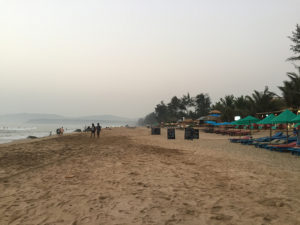 As we move further south from Mumbai our happy traveling group is in fact a trio. 2 women and 1 man (me). I don’t know where I would rank on a sensitivity scale but I can say with some confidence that I am a sensitive human. I notice things around me to the point that often the decisions I make are based mostly on what impact my actions would have on others. (depending on the situation of course, but apparently more often than the average bear) Im traveling with 2 women and since I haven’t asked their permission to talk about things like their age and backgrounds, I will leave that part out because what I want to talk about is not dependent on those more personal details. The fact that they are women already says a lot. We live in a world where, even if 2016 feels very far into the future, your gender impacts how you are treated, and well… so much more.
As we move further south from Mumbai our happy traveling group is in fact a trio. 2 women and 1 man (me). I don’t know where I would rank on a sensitivity scale but I can say with some confidence that I am a sensitive human. I notice things around me to the point that often the decisions I make are based mostly on what impact my actions would have on others. (depending on the situation of course, but apparently more often than the average bear) Im traveling with 2 women and since I haven’t asked their permission to talk about things like their age and backgrounds, I will leave that part out because what I want to talk about is not dependent on those more personal details. The fact that they are women already says a lot. We live in a world where, even if 2016 feels very far into the future, your gender impacts how you are treated, and well… so much more.
Im an avid follower of current events in as many countries as I can possibly follow. Much of what I know is shaped by various media outlets as well as friends who Im fortunate enough to have in every corner of this planet. And so I have some idea, for example, of what the status is when it comes to treatment of people based on gender in a place like, say – India. I’ve read my history books and watched events unfold that revealed how complicated it can be, but above all, where and in what ways women are being mistreated.
Now to the meat of the story. I’m traveling with two women. Two wonderful humans, but again, no details beyond that for their safety. Sometimes I walk ahead of them because they’re talking and Im a long legged kid. Often I walk behind them because I’m slow and easily distracted, always looking left and right and down or up. As this goes on, what I notice in India are the looks in people’s eyes. In the cities, in the villages, eyes are on us. More specifically, eyes are on them, especially eyes belonging to men. They don’t just look, the way you would look if any living thing passed in front of you; they stare. The staring ranges from the kind you might call gawking, to oggling, to lusting, to threatening. It is a dead look, almost zombie like. The kind of gaze that they themsleves may not be aware they are doing, yet it is also a look that they seem completely unconcerned about stopping. The look gets worse the more men are standing among other men. It gets worse when there are no women of authority in their lives within an earshot. It gets worse when it seems like no one else is around or paying attention, not that crowds of people could snap them out of this pathetic trance.
Sometimes it comes from a man standing in a shop doorway, waiting for customers and then suddenly enchanted beyond control. Other times it is as they walk by, complete with that glancing back after we’ve passed, and continuing to stare even at the risk they will crash into something. If you’re in a hot, coastal area (which isn’t hard to come by in India) then it happens at more intimate moments, like when a woman is swimming in the ocean; they stand on the sand staring directly at any women who dares to wear a bathing suit and swim. They stare when she comes out of the water to dry off or simply walk home. Their eyes follow as women do everything in their power to move quickly and get somewhere beyond the horrible eyes that won’t stop following them.
Staring is not the worst crime a man, or anyone really, can commit. In fact its not even punishable under law, I think anywhere in the world. History shows us far worse things to worry about, some of which have improved in terms of how women are treated and protected under the law. But that doesn’t mean the staring isn’t a terrible thing.
I’ve watched as a good day turns to a bad day, because of the stares. I’ve watched as one moment a women can feel human and respected to her feeling reduced to a collection of body parts or an object. A little piece of paradise along the coast goes from tranquil recharging to hostile territory.
I’ve watched all this as a man. And even though I’m unable to know what it is like as a women, as I man, I absolutely hate it. It disgusts me. It disappoints me. I makes me want to exit this planet and take all the women with me to keep them from ever having to deal with such an assault. It makes me want to smash every staring moron in the face, regardless if he does or doesn’t know any better.
But all these feelings and wishes don’t change anything. Women everywhere, including in India, still have to walk down the street and be confronted by this vile shit. And this doesn’t even take into account the far more horrid things beyond the staring that women endure still today and at this moment, at the hands of men. And once my rage fades a bit, all that I’m left with is a silent sadness and some passionate typing on a keyboard. Which again, changes nothing.
 Since 2003, Video Volunteers has been daring to challenge the status quo of media within Indian democracy, helping train and amplify video reporting by members of communities that are considered by those in power as unimportant, weak, or inferior. Today on the program we’re in Goa, at the headquarters of Video Volunteers listening to founder Jessica Mayberry explain what the organization has been up to; their successes, goals, and challenges that have come along with helping these embattled voices be heard.
Since 2003, Video Volunteers has been daring to challenge the status quo of media within Indian democracy, helping train and amplify video reporting by members of communities that are considered by those in power as unimportant, weak, or inferior. Today on the program we’re in Goa, at the headquarters of Video Volunteers listening to founder Jessica Mayberry explain what the organization has been up to; their successes, goals, and challenges that have come along with helping these embattled voices be heard.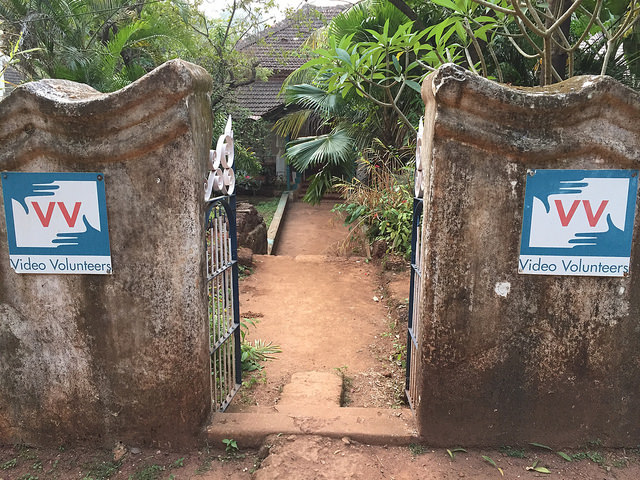
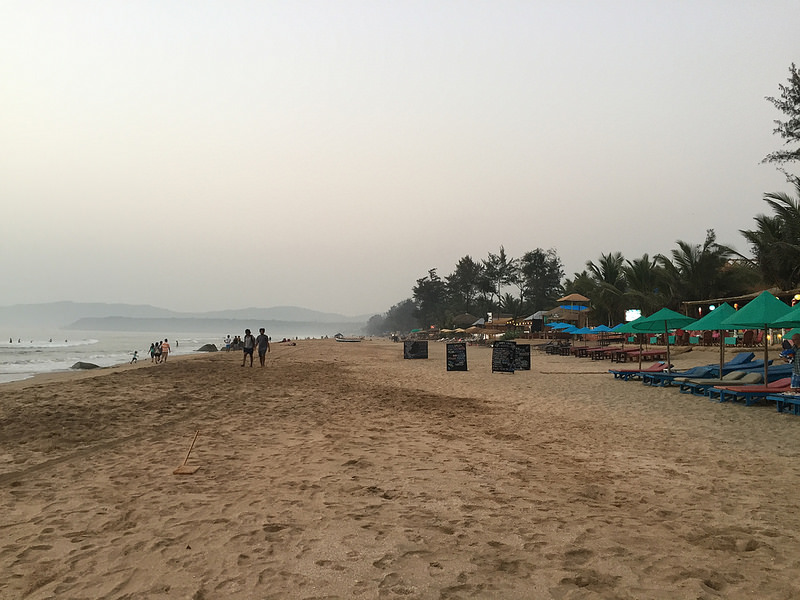
 As we move further south from Mumbai our happy traveling group is in fact a trio. 2 women and 1 man (me). I don’t know where I would rank on a sensitivity scale but I can say with some confidence that I am a sensitive human. I notice things around me to the point that often the decisions I make are based mostly on what impact my actions would have on others. (depending on the situation of course, but apparently more often than the average bear) Im traveling with 2 women and since I haven’t asked their permission to talk about things like their age and backgrounds, I will leave that part out because what I want to talk about is not dependent on those more personal details. The fact that they are women already says a lot. We live in a world where, even if 2016 feels very far into the future, your gender impacts how you are treated, and well… so much more.
As we move further south from Mumbai our happy traveling group is in fact a trio. 2 women and 1 man (me). I don’t know where I would rank on a sensitivity scale but I can say with some confidence that I am a sensitive human. I notice things around me to the point that often the decisions I make are based mostly on what impact my actions would have on others. (depending on the situation of course, but apparently more often than the average bear) Im traveling with 2 women and since I haven’t asked their permission to talk about things like their age and backgrounds, I will leave that part out because what I want to talk about is not dependent on those more personal details. The fact that they are women already says a lot. We live in a world where, even if 2016 feels very far into the future, your gender impacts how you are treated, and well… so much more.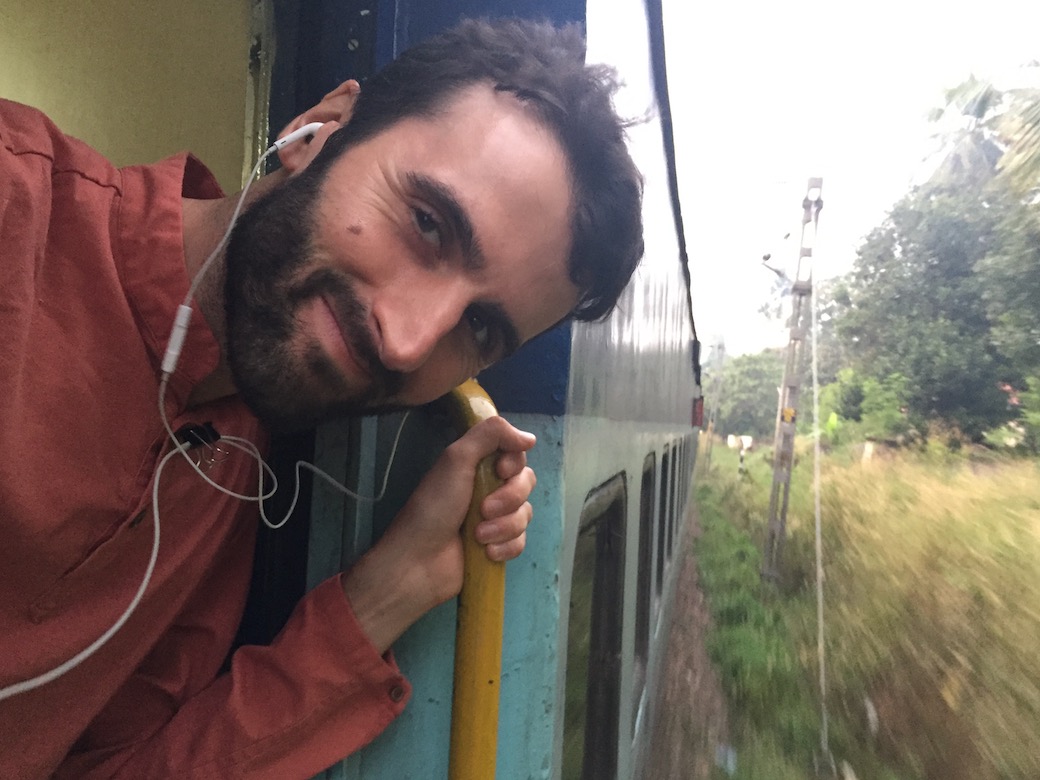
 It may draw some stares and annoy my traveling companions, but occasionally I take out the recorder while we are on long train journeys to try and capture the sounds and memories. The following is audio from some of those train rides. Some of South India’s most beloved train lines coming to you directly in audio format. Enjoy!
It may draw some stares and annoy my traveling companions, but occasionally I take out the recorder while we are on long train journeys to try and capture the sounds and memories. The following is audio from some of those train rides. Some of South India’s most beloved train lines coming to you directly in audio format. Enjoy!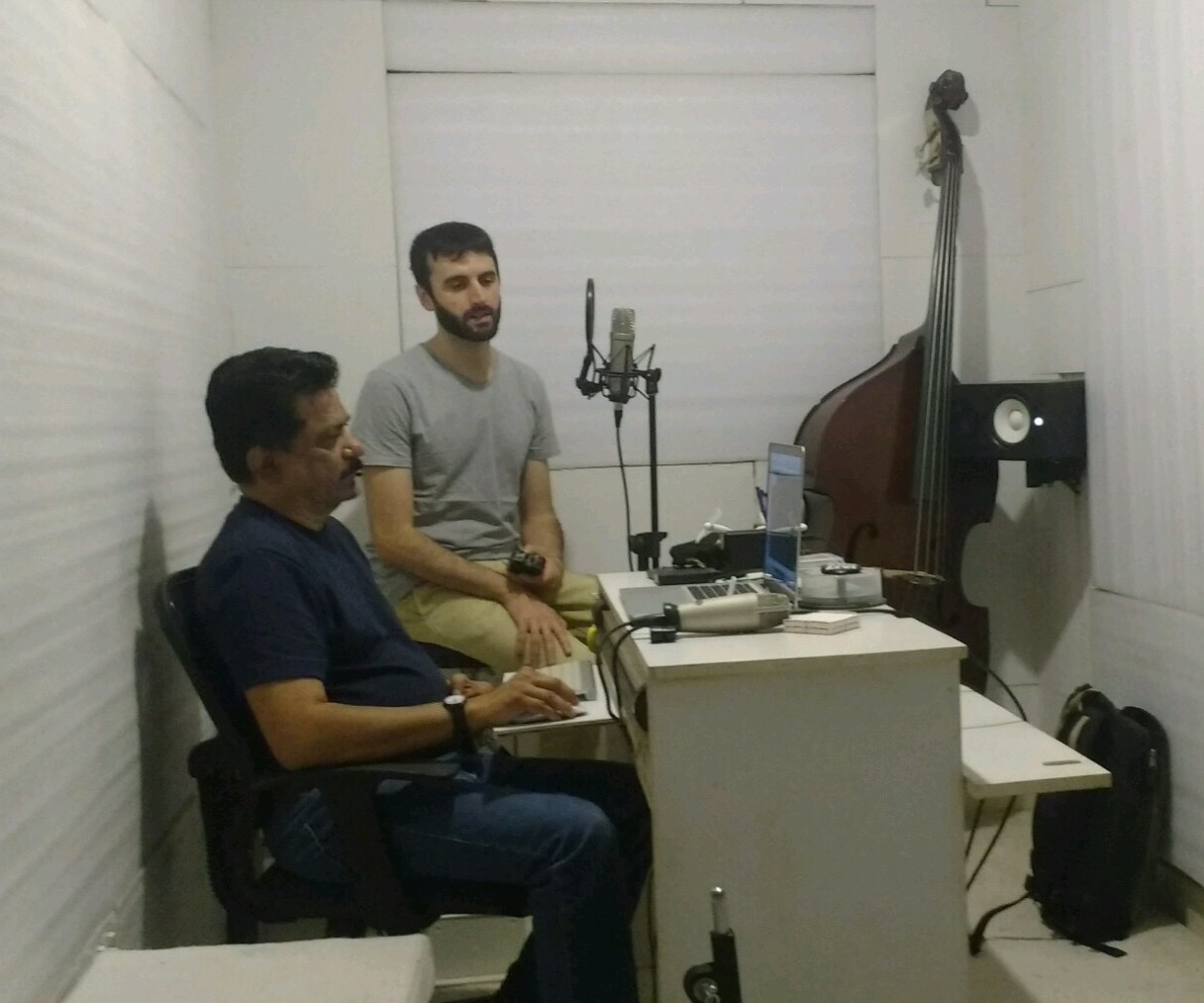
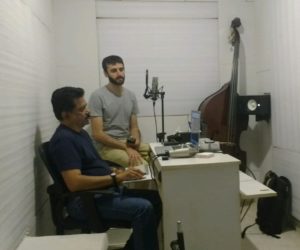 Jazz, konkani, Portuguese, bollywood; these are just the tip of the iceberg when you start to examine the rich heritage of Goan music. Colin D’Cruz is a one stop shop for music made in Goa. As a musician, producer, and record label, he’s got his ear to the ground when it comes to what sounds are coming out of Goa; yesterday, today and in the future. We went to visit him in the studio where we recorded this brief tour of Goan music.
Jazz, konkani, Portuguese, bollywood; these are just the tip of the iceberg when you start to examine the rich heritage of Goan music. Colin D’Cruz is a one stop shop for music made in Goa. As a musician, producer, and record label, he’s got his ear to the ground when it comes to what sounds are coming out of Goa; yesterday, today and in the future. We went to visit him in the studio where we recorded this brief tour of Goan music.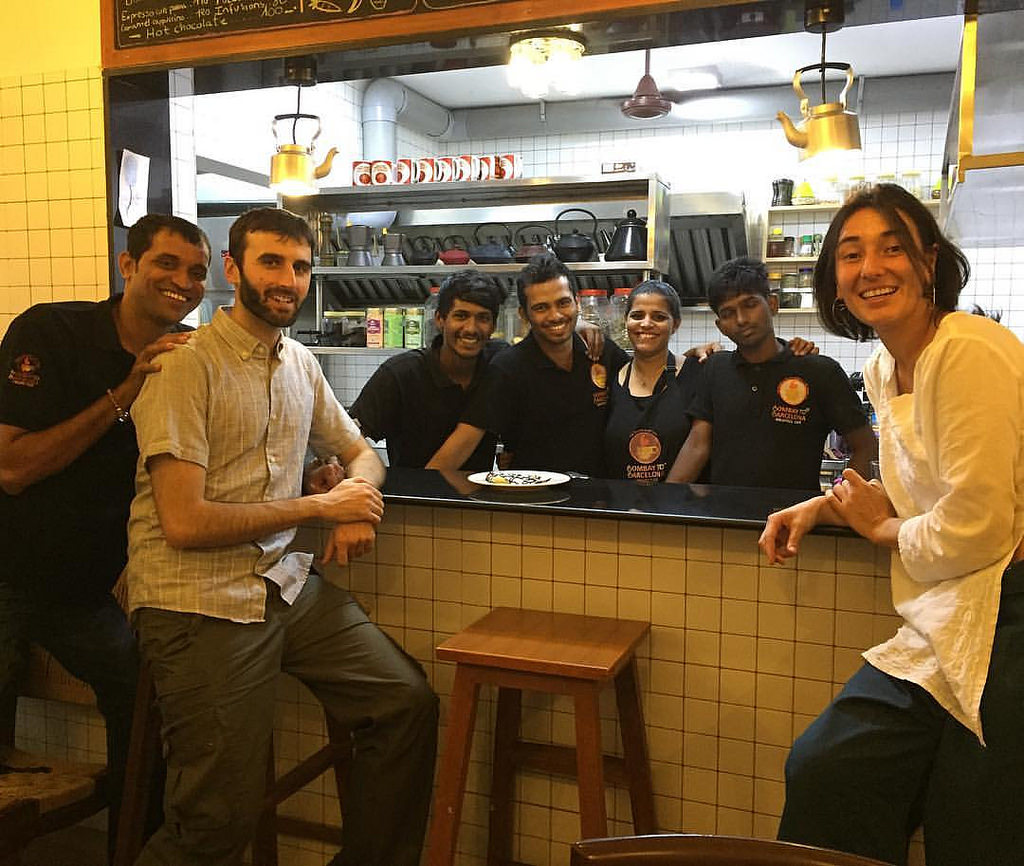
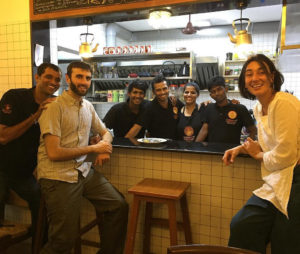 (Episode 488) Amin Sheikh grew up living on the streets of Mumbai, with all the horror and joy that only they can bring to a child with no one to turn to. Those streets might have eaten him alive, and they almost did- until someone came along and changed all that. A few someones in fact, who’s actions changed the direction of his life. His personal slogan, “I am because of you”, means exactly what it sounds like. If you’re reading this, listening to this, sharing in this experience, then he is in many ways – because of you.
(Episode 488) Amin Sheikh grew up living on the streets of Mumbai, with all the horror and joy that only they can bring to a child with no one to turn to. Those streets might have eaten him alive, and they almost did- until someone came along and changed all that. A few someones in fact, who’s actions changed the direction of his life. His personal slogan, “I am because of you”, means exactly what it sounds like. If you’re reading this, listening to this, sharing in this experience, then he is in many ways – because of you.